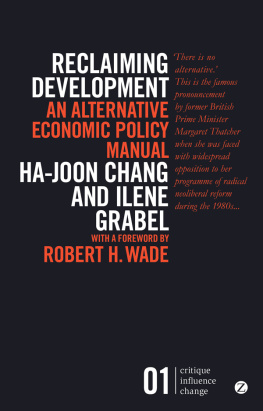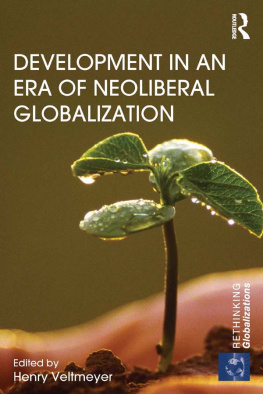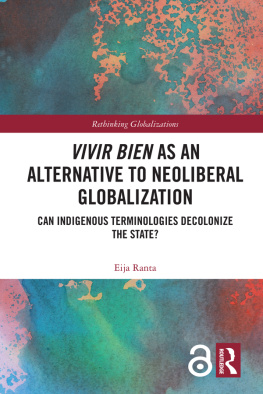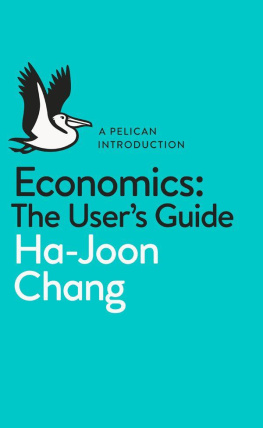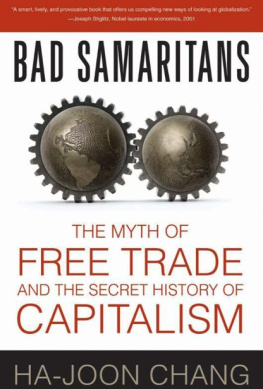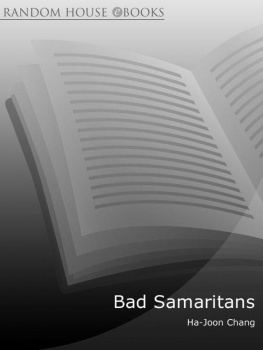
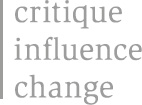
| critique confronts the world. Without dogma, without new principles, it refuses to conform and instead demands insurrection of thought. It must be ruthless, unafraid of both its results and the powers it may come into conflict with. Critique takes the world, our world, as its object, so that we may develop new ways of making it. |
influence is a step from critique toward the future, when effects begin to be felt, when the ground becomes unstable, when a movement ignites. These critiques of the state of our world have influenced a generation. They are crucial guides to change. |
change is when the structures shift. The books in this series take critique as their starting point and as such have influenced both their respective disciplines and thought the world over. This series is born out of our conviction that change lies not in the novelty of the future but in the realization of the thoughts of the past. |
These texts are not mere interpretations or reflections, but scientific, critical, and impassioned analyses of our world. After all, the point is to change it. |
TITLES IN THE CRITIQUE INFLUENCE CHANGE SERIES
Reclaiming Development
An Alternative Policy Manual
by Ha-Joon Chang and Ilene Grabel
Realizing Hope
Life Beyond Capitalism
by Michael Albert
Global Governance and the New Wars
The Merging of Development and Security
by Mark Duffield
Capitalism in the Age of Globalization
The Management of Contemporary Society
by Samir Amin
Ecofeminism
by Maria Mies and Vandana Shiva
Debating Cultural Hybridity
Multicultural Identities and the Politics of Anti-Racism
edited by Pnina Werbner and Tariq Modood
Deglobalization
Ideas for a New World Economy
by Walden Bello
A Fundamental Fear
Eurocentrism and the Emergence of Islamism
by Bobby S. Sayyid
Patriarchy and Accumulation on a World Scale
Women in the International Division of Labour
by Maria Mies
CRITICAL PRAISE FOR RECLAIMING DEVELOPMENT
In a world wracked by crises, compromised institutions and bourgeoning inequalities, Chang and Grabel provide a real, workable roadmap to a post-neoliberal future. Look no further there are alternatives, and Reclaiming Development points the way.
James Heintz, University of Massachusetts Amherst
Reclaiming Development remains a key manual for those looking for a more balanced future. It also serves as an important source for arguments that can debunk reactionary efforts to use the crisis as a means to push an agenda of deregulation.
Kevin Gallagher, co-director, Global Economic Governance Initiative, Boston University
This book is not only a superb antidote to the numbing myths of neoliberalism but also a cogent and stimulating presentation of the many possibilities for alternatives
Thandika Mkandawire, London School of Economics and Political Science
This unusually well-written, direct and succinct book is a fine, carefully analytical achievement which would contribute to hastening both efficient and socially just development wherever the insights are appropriately used.
John Langmore, University of Melbourne
Chang and Grabel demolish the myths (or fabrications) underlying neoliberal views about economic development and provide succinct, constructive suggestions for policies Reclaiming Development is a manifesto that should be on the shelves of policymakers, academics and students worldwide.
Lance Taylor, New School University
The wide range of policy suggestions contained in this book provides a rich mine of concrete and practicable alternatives from which to choose in taking advantage of whatever room globalization still allows developing countries
Martin Khor, executive director, The South Centre
The dominant neoliberal economic doctrine asserts that there is no alternative to its policy prescriptions This book refutes the belief system implicit in the assertion in a manner that is highly iconoclastic. Yet, it is solidly grounded in economic theory and empirical evidence, both historical and contemporary.
Deepak Nayyar, Jawaharlal Nehru University
ABOUT THE AUTHORS
Ha-Joon Chang teaches economics at Cambridge University. He is the author of 23 Things They Dont Tell You about Capitalism.
Ilene Grabel is an economist and professor at the Josef Korbel School of International Studies at the University of Denver.
RECLAIMING
DEVELOPMENT
AN ALTERNATIVE
ECONOMIC POLICY
MANUAL
HA-JOON CHANG
AND ILENE
GRABEL
WITH A FOREWORD BY
ROBERT H. WADE

Zed Books
London & New York
For Hee-Jeong and George
Reclaiming Development: An Alternative Economic Policy Manual was first published in 2004 by Zed Books Ltd, 7 Cynthia Street, London N1 9JF, UK and Room 400, 175 Fifth Avenue, New York, NY 10010, USA
This ebook edition was first published in 2014
www.zedbooks.co.uk
Copyright Ha-Joon Chang and Ilene Grabel 2004, 2014
Foreword Robert Wade 2014
The rights of Ha-Joon Chang and Ilene Grabel to be identified as the authors of this work has been asserted by them in accordance with the Copyright, Designs and Patents Act, 1988
All rights reserved. No part of this publication may be reproduced, stored in a retrieval system or transmitted in any form or by any means, electronic, mechanical, photocopying or otherwise, without the prior permission of Zed Books Ltd.
A catalogue record for this book is available from the British Library
Library of Congress Cataloging in Publication Data available
ISBN 978 1 78032 973 4
Contents
Acknowledgements
This book would not have been written without the encouragement and advice of Robert Molteno, our wonderful editor at Zed. We thank Ken Barlow, our new editor at Zed, for the enthusiasm and professionalism with which he pursued the reissue of Reclaiming Development.
Duncan Green read the first draft of all the main chapters and provided many useful comments on them. George DeMartino reviewed several drafts of the manuscript, and his comments improved each version immeasurably.
Ha-Joon Chang wishes to thank the Korea Research Foundation, which through its BK21 programme supported his visit to the Department of Economics of Korea University, where he was a visiting research professor when the manuscript was finalized.
Ilene Grabel thanks the Faculty Research Fund of the University of Denver for the financial support that aided her work on this book, and Peter Zawadzki for his superb research assistance. She also thanks her wonderful students at the Graduate School of International Studies at the University of Denver and her friends in nongovernmental organizations for their insistence that she think about concrete policy alternatives to neoliberalism.
List of Abbreviations
CEO | Chief executive officer |
ECLAC | Economic Commission for Latin America and the Caribbean |
Next page
